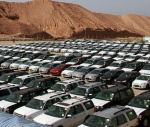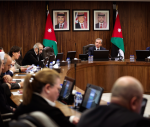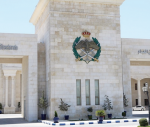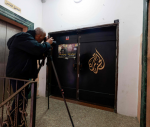You are here
After Aleppo, a kind of peace?
Nov 28,2016 - Last updated at Nov 28,2016
Eastern Aleppo, the rebel-held half of what was once Syria’s biggest city, is falling.
Once the resistance there collapses, things may move very fast in Syria, and the biggest question will be, do the outside powers that have intervened in the war accept Bashar Assad’s victory, or do they keep the war going?
Even one year ago, it seemed completely unrealistic to talk about an Assad victory. The Syrian government’s army was decimated, demoralised and on the verge of collapse. Every time the rebels attacked, it retreated.
There was even a serious possibility that Daesh and Al Nusra Front, the extreme Islamist groups that dominated the rebel forces, would sweep to victory in all of Syria.
But then, just 14 months ago, the Russian air force was sent in to save Assad’s army from defeat.
It did more than that. It enabled the Syrian army, with help on the ground from Shiite militias recruited from Lebanon, Afghanistan and Iraq, and mostly trained and commanded by Iranian officers, to go onto the offensive.
Assad’s forces took back the historic city of Palmyra. They eliminated the last rebel-held foothold in the city of Homs. And last summer, they began to cut eastern Aleppo’s remaining links with the outside world.
In July, government forces took control of the Castello Road, ending the flow of food and supplies for eastern Aleppo’s 10,000 rebel fighters and its claimed civilian population of 250,000 people. (The real total of civilians left in the east of the city, once home to around a million people, is almost certainly a small fraction of that number.)
A rebel counteroffensive in August briefly opened a new corridor into eastern Aleppo, but government troops retook the lost territory and resumed the siege in September.
For almost two months now, almost nothing has moved into or out of the besieged half of the city, and both food and ammunition are running short inside. So the resistance is starting to collapse.
The Hanano district fell on Saturday, and Jabal Badro fell on Sunday.
If Assad’s forces have also taken Sakhour by the time you read this, the rebel-held enclave will have been cut into two.
If that happens, the remaining bits north of the cut will quickly be pinched out by the Syrian government’s troops.
The southeastern part of the city might stay in rebel hands a while longer, but military collapses of this sort are infectious.
It is now likely that Bashar Assad will control all Aleppo before the end of the year.
Indeed, at that point, he would control all of Syria’s major cities, at least three-quarters of the population that has not fled abroad, and all of the country’s surviving industry.
He would be in a position to offer an amnesty to all the rebels except the extreme Islamists of Daesh and Al Nusra Front (which keeps changing its name in an attempt to hide its close links with Al Qaeda).
Many of the less fanatical Syrian rebels would be tempted by an offer of amnesty: they are very tired, and their hopes of victory have evaporated.
For the many foreign powers that are involved in the Syrian civil war, it would then come down to a straight choice: Assad’s cruel but conventional regime or the Islamist crazies.
Even Turkey and Saudi Arabia, however much their leaders may loathe Assad, could not openly put their armies at the service of the Islamists. (They used to send them arms and money, but even that has stopped now.)
And for a newly installed President Donald Trump, it would become a lot simpler to “make a deal” with Russia’s President Vladimir Putin to finish the job of crushing Daesh and Al Nusra Front together.
Would the Russians and the Americans then hand over all the recaptured territory to Assad’s regime?
Many people in Washington would rather hang onto it temporarily in order to blackmail Syria’s ruling Baath Party into replacing Assad with somebody a bit less tainted, but a deal between Putin and Trump would certainly preclude that sort of games playing.
How could Trump reconcile such a deal with Russia with his declared intention to cancel the agreement the US signed last March to curb Iran’s nuclear weapons ambitions?
Iran is Russia’s closest ally in the Middle East, and if Trump breaks that agreement, he will be reopening a US military confrontation with Iran.
Since this question may not even have crossed Trump’s mind yet, it would be pointless to speculate on which way he might jump three months from now — especially since he has never been hobbled by an obsession with consistency.
All we can say with some confidence at the moment is that it looks like Assad has won his six-year war to stay in power.
The writer is an independent journalist whose articles are published in 45 countries.













